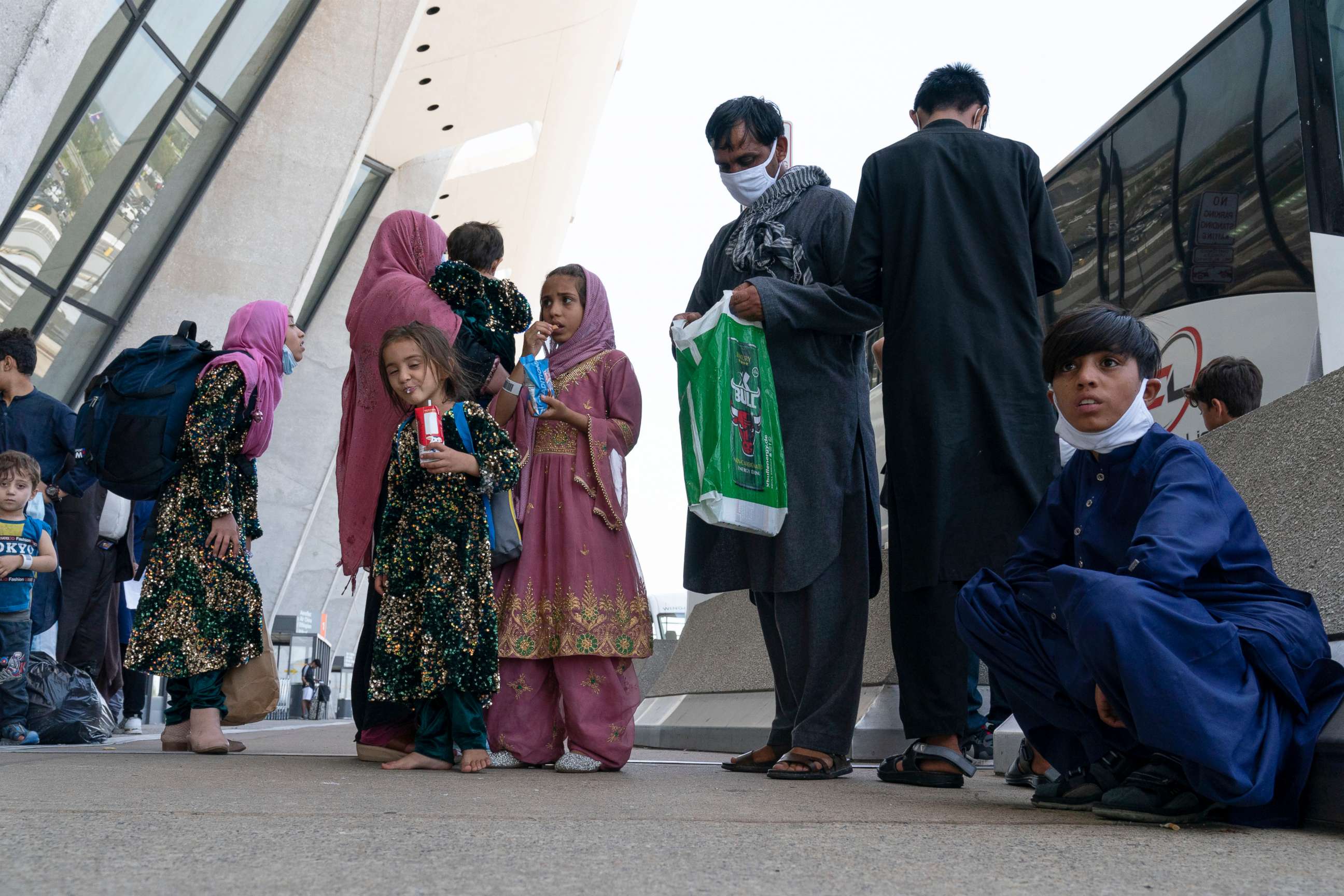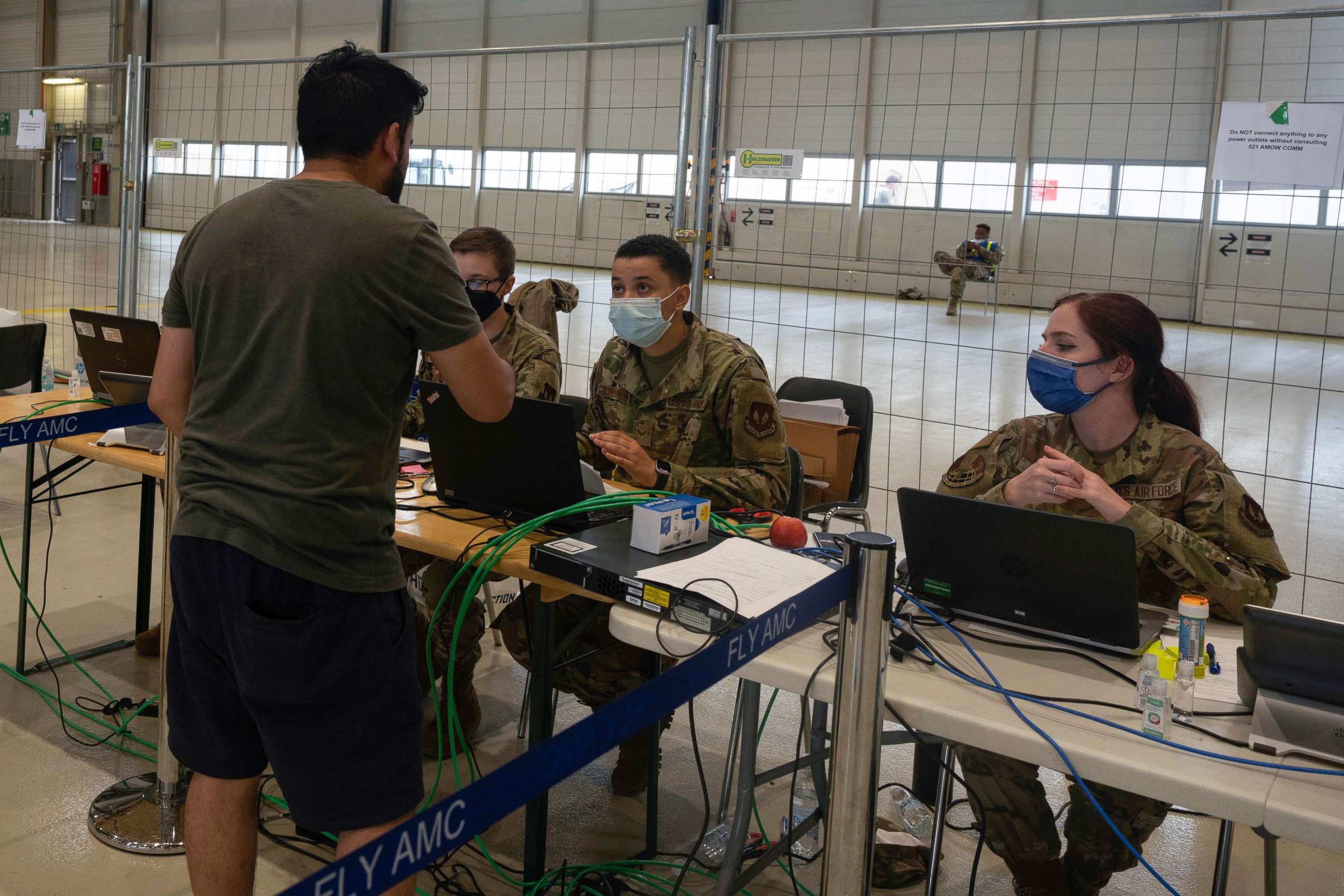Amid Afghanistan chaos, refugee vetting process is sound: OPINION
The focus should be on welcoming refugees, not fearmongering.
In recent weeks, we have watched harrowing images of desperate Afghan men, women and children attempt to escape Taliban rule. For 20 years, the United States made promises: If you help us defeat al-Qaida and the Taliban, then we will ensure you and your family are safe from retribution. And if that is not possible in Afghanistan, we will provide you refuge in the United States.
Now, these men and women who risked their lives to support our fight against terrorism, plus millions of Afghans who have flourished in the increasing freedoms from the last 20 years -- women, journalists, Christians and other Afghans of non-Muslim faiths -- face great risk of violent oppression or death.
It is right that the U.S. is evacuating as many people as possible. We should do so without a deadline. The U.S. should stay until we finish the job of evacuating all American citizens and Afghans that served alongside us, and as many other Afghans in fear for their lives as possible.
Inspired by the example set by the Greatest Generation, who experienced firsthand the human costs of war during World War II, our country has served as a global beacon of freedom and opportunity by providing a safe haven for victims of war, oppression, genocide and natural disasters. We should save our allies and offer refuge to those endangered because it is the humane and just thing to do and is consistent with our country's principles that all men and women are "endowed by their creator with certain inalienable rights," including life and liberty.
No, we cannot intervene in every injustice in the world. As great as our country is, we are humans, not God, with limitations on our resources, time, knowledge and capabilities. But we do have a moral responsibility to save who we can from mass atrocities and genocide.
Moreover, failure to protect our allies could yield national security implications in the future. My colleagues at the Council on National Security and Immigration have argued that failing to live up to our promises could put our military service members in danger by making it more difficult to forge new alliances in future conflict missions. And as I've written before, robust refugee programs strengthen national security.
Fortunately, both Democratic and Republican governors across the country are stepping up. From California to South Carolina, state leaders are vocally supporting U.S. efforts to evacuate Afghans and offering their states as refuge. As Maryland Republican Gov. Larry Hogan said, "It's the least we can do" for people who put their lives at risk for our country.

While these governors have shown their commitment to our nation's values of compassion and freedom, their sentiments are not universal. Some politicians, including former President Donald Trump and House Minority Leader Kevin McCarthy, are sowing doubt around our allies by misconstruing the thorough vetting process for Afghan refugees. This fearmongering is dangerous and not based in fact.
As former assistant secretary of counterterrorism and threat prevention at the U.S. Department of Homeland Security under Trump, I was responsible for strengthening the security vetting processes used for refugees, special immigrant visa holders and others. In general, refugees and SIVs are among the most thoroughly vetted categories of immigrants admitted to the United States. Of course, the rapid evacuation and large numbers of refugees being sent to the United States understandably raises questions as to whether our processes can work effectively with such significant increases in volume in a compressed time frame.
Last week, I set about to understand the processes being used. My former colleagues in the vetting community worked around the clock, leveraging technology and redesigning processes to allow for a more streamlined, but thorough, security vetting process.
Here's the truth: Any Afghan, whether they are being admitted as an SIV or as part of the humanitarian parole, is only admitted into the U.S. after biographic and biometric checks are conducted. The U.S. is checking names, dates of birth and other biographic identifiers, as well as fingerprints, against multiple agencies' holdings. That includes the terrorist watchlist as well as the biometric databases that are part of U.S. Refugee Admissions Program screening. If derogatory information is discovered, an individual is pulled aside for additional screening. And as has been publicly reported, such individuals are not admitted to the United States.
While the evacuation of Americans and Afghans has been flawed in many respects, and I wish the Biden administration had heeded the warnings that many offered about the need to invest in our security vetting procedures well in advance of the current crisis, I am confident that the security vetting process being used for admitting Afghan refugees into the United States is competent and will keep known and suspected terrorists from entering the country.

Knowing that the vetting process is sound, political leaders with legitimate criticisms of the Biden administration's evacuation process and policy choices should choose their words carefully. Multiple studies have linked anti-immigrant and fearmongering rhetoric, particularly by prominent political and media personalities, to increases in hate crimes and violence. As we move to resettle tens of thousands of Afghan refugees, we should avoid language that incites fear or hatred. These Afghans have endured trauma to help the United States, and we should welcome them.
We should absolutely be asking tough questions about the Biden administration's actions in Afghanistan. The U.S. withdrawal is creating instability in the region that could embolden ISIS and al-Qaida. The future for Afghan women and girls is at risk. The country is in chaos. Let's focus on those questions instead of inciting fear about individuals who risked everything, in the hope that their country's future would look very different than this.
Our focus now, in these final days, must be on supporting our troops as they complete the evacuation from a 20-year war that's cost thousands of lives. One meaningful way to do that is by welcoming and supporting Afghan refugees who have welcomed and supported us in their homeland.
Elizabeth Neumann is chief strategy officer at Moonshot and a national security analyst for ABC News. She served as the Department of Homeland Security's assistant secretary for counterterrorism and threat prevention from March 2018 until she resigned in April 2020.




